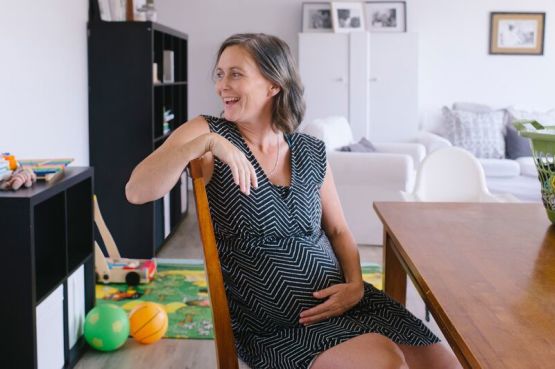Women are turning to Google for 'abnormal' health worries
Recent research from Bupa Health Clinics reveals an increase in Google searches about women's health concerns
Research shows a greater need for women’s health awareness
1 in 5 women say they wouldn’t visit their doctor if they had pelvic pain or an unusual discharge or bleeding.
1 in 3 women say they wouldn’t see a doctor if they had bleeding outside of their usual menstrual cycle.
Up to a third of women will experience abnormal uterine bleeding in their life (and they should always talk to a GP).
43% of women wouldn’t seek medical help for pelvic pain.
41% of women wouldn’t go to a GP if they had an unusual discharge.
Here Dr Sam Wild answers our most Googled questions

Throughout her career as a GP, Sam has developed a particular interest in women’s health, paediatrics and safeguarding. She is committed to breaking down the stigma around many subjects relating to female health. Through her writing, lectures, podcasts and live Q&A events, she hopes to empower women to get the right information and develop the confidence to deal with their concerns.
Period pain
Searches on Google in the UK have continued to increase for period-related queries:
184%
growth in searches for ‘cramps but no period’
50%
increase in searches for ‘period pain but no period’
175%
growth in searches for ‘period pain relief’
177%
increase in searches for ‘unbearable period pain’
March 2019 - February 2021
Painful periods are very common. Most women experience a dull ache or sharp pains during their period, also known as menstrual cramps. Knowing how to minimise your discomfort is important. You can ease cramping in several ways for example, pain relief like ibuprofen, along with a warm bath and lightly massaging your lower abdomen, can lessen the pain. Relaxation techniques like mindfulness or meditation could help to ease your cramps, too.
Although some pelvic pain and cramping is normal with a period, it isn’t always just due to this. Other causes could include endometriosis, fibroids, pelvic inflammatory disease or an ectopic pregnancy. That’s why it’s important to try and find out what the cause is.
If you’re struggling with painful periods, it's important not to suffer in silence. Ask your doctor for support and advice if you’re unable to carry out your daily activities or need to take continuous pain relief for your period pain.
Your menstrual cycle
In the past year, a growing number of women in the UK have turned to Google for support with their menstrual cycle:
2,500%
growth in searches for ‘is it normal to feel nauseous before your period?'
1,300%
growth in searches for ‘is it normal to feel sick on your period?'
800%
growth in searches for ‘is it normal to get cramps before your period?'
April 2019 - March 2023
Over the past two years, an increasing number of women turned to ‘Dr Google’ for their period-related concerns. For some women, their menstrual cycle is regular - which means the same duration at the same time every month. Others may experience irregular periods. Some women’s periods are lighter while others have heavy periods, and it can vary even for the same woman. Some women’s periods are painful, while others are pain-free.
It’s important to know how you spot the signs for any irregularities. A menstrual cycle can range from 21 to 40 days. For most women, the average length of time between periods is 28 days.
Hormonal changes can cause some women to suffer from sickness or nausea during their period. You could try to ease your nausea using natural treatments like ginger or cinnamon (perhaps in tea, or you could add them to your breakfast), and acupressure may help with nausea during your period.
Missed or late periods can happen for many reasons besides pregnancy, including stress, sudden weight loss, doing too much exercise, and the menopause. Your monthly cycle may stop because of a medical condition, such as uncontrolled diabetes, an overactive thyroid, early or premature menopause, or heart disease.
If your period is late and you’re sexually active, there’s a chance you might be pregnant. If your cycle is late and doesn’t come after a few days, you could take a pregnancy test to be sure. See a GP if you’ve missed more than three periods in a row and you’ve had a negative pregnancy test.
Abnormal bleeding
Over the past 12 months, worldwide Google search data has revealed a significant increase in searches relating to abnormal bleeding:
600%
growth in searches for ‘is it normal to get period twice a month?’
320%
growth in searches for ‘is it normal to bleed during ovulation?’
300%
growth in searches for ‘is it normal to have spotting before period?’
April 2019 - March 2023
Any abnormal bleeding should be checked out by your doctor, particularly if the bleeding occurs during or after sex. If you usually have a regular cycle, a change in your cycle (such as suddenly having two periods in a month) could indicate an infection or other conditions such as polyps, and cervical and endometrial cancer (cancer of the womb) will need to be considered and excluded.
Pain during sex should never be ignored, as it could be a sign of endometriosis or an infection.
You should always discuss any concerns about abnormal bleeding or pain with your doctor. No issue or worry is too embarrassing it’s always best to get checked by your GP.
If it helps to make you feel more comfortable, you can ask for a female GP at your appointment. Although it may feel embarrassing, remember that doctors and nurses see bodies of all shapes and sizes every single day. Their main concern is making sure you’re healthy.
Vaginal discharge
Women continue to turn to Google for their 'abnormal' health worries, including vaginal discharge.
3,900%
growth in searches for ‘brown period blood for a week'
3,150%
growth in searches for ‘creamy discharge meaning'
3,100%
growth in searches for ‘black discharge 2 weeks after period’
April 2019 - March 2023
Vaginal discharge isn’t usually anything to worry about it’s natural and healthy to have some discharge. However, there are a few factors that can affect the amount and consistency of your discharge. These include your age, the stage of your menstrual cycle, and whether you take the contraceptive pill.
An unexplained change in your vaginal discharge, along with any other symptoms like itchiness, pelvic pain, and bleeding during sex, can be sign of an infection or something more serious. So it’s important to get any unexplained abnormal changes checked by your doctor.
Almost all women have more vaginal discharge in pregnancy. This is completely normal and helps prevent infection. If you’re concerned about discharge, talk to your midwife or GP.
How your mental health and menstrual cycle are linked
Your mental health and menstrual cycle are closely linked together
Stress can shorten or stop your cycle, and can cause painful periods. Your menstrual cycle is controlled by the hormones oestrogen and progesterone. A change in these hormones can wreak havoc with your emotions, leaving you feeling anxious, irritated, stressed, or depressed.
It’s common to experience emotional symptoms before your period starts, and this is known as PMS (premenstrual syndrome). These symptoms can range from physical symptoms such as feeling bloated, backache and tender breasts, to emotional and behavioural symptoms like mood swings, lower self-confidence, and forgetfulness.
If you do have PMS, your symptoms will often appear around five days to two weeks before your period, and will decrease once your period starts.
Premenstrual dysphoric disorder (PMDD) is a very severe form of premenstrual syndrome. It can cause many different emotional and physical symptoms before your period starts each month. Symptoms can include feeling angry, overwhelmed, and hopeless, and can have a real impact on your daily life. Other symptoms include headaches, breast swelling, finding it difficult to resolve conflicts with those around you, and disrupted sleep.
There are different treatments and self-help techniques you could try to ease your symptoms, including talking to someone you trust, talking therapies with a professional, anti-depressants, and tracking your cycle. In any case, it’s important to speak to your doctor if you’re experiencing symptoms that are affecting your everyday life.
Three benefits of tracking your monthly cycle
Tracking your menstrual cycle is a great way to get to know your body better and learn what’s normal for you.
Understand your mood
Being able to recognise patterns in your emotions can be beneficial for those who experience either PMS or PMDD symptoms. If you notice certain symptoms before your period is due, understanding why you’re feeling this way can help.
Mental health support >Spot any abnormalities
Knowing your menstrual cycle helps you to get to know what’s normal for your body (and what isn’t). It will help you to quickly spot any unusual discharge, abnormal bleeding, or any unusual symptoms, and to flag these changes with your doctor.
Family planning
Keeping track of your menstrual cycle can sometimes be used as a method of family planning or contraception. As you monitor your periods over time, you will begin to identify any signs of fertility during your cycle so you can plan for, or avoid, pregnancy.
Your doctor or pharmacist may be able to advise you about tracking your cycle for family planning.
Planning for pregnancy >Women's health support from Bupa
Explore our information on a range of conditions, treatments and procedures relating to women's health.
Female health check
If you don’t have health insurance and you’re looking for further support, you can discuss any female health concerns relating to breast and gynaecological health by booking a Bupa female health assessment today.
To enquire or to book an appointment. call
0330 134 2996^
Private GP
Book a private appointment with a GP today to discuss smear tests, contraceptive choices, vaginal discharge, and period problems. You can see a Bupa GP face to face in one of our health clinics, or book a remote appointment by phone or video call.
Our Menopause Plan
If you’re worried about the menopause, experiencing symptoms or looking for menopause treatment, our Menopause Plan lets you talk to a GP who has been specially trained in the menopause.
Endometriosis support
We’ve gathered together information about how to deal with your symptoms, how to cope with endometriosis at work, and personal stories from women living with endometriosis. Plus, there’s support and advice from Bupa’s health experts.
Women’s health hub
Our women’s health hub offers expert information, advice and online resources about a range of women’s health conditions, including the menopause, endometriosis, and women’s health at work.
Women’s health articles you may find helpful
^ Lines are open Monday to Friday 8am to 8pm and Saturday 9am to 5pm. We are closed on Sundays.
Bupa health assessments and Bupa private GP services are provided by Bupa Occupational Health Limited. Registered in England and Wales No. 631336. Registered office: 1 Angel Court, London, EC2R 7HJ




